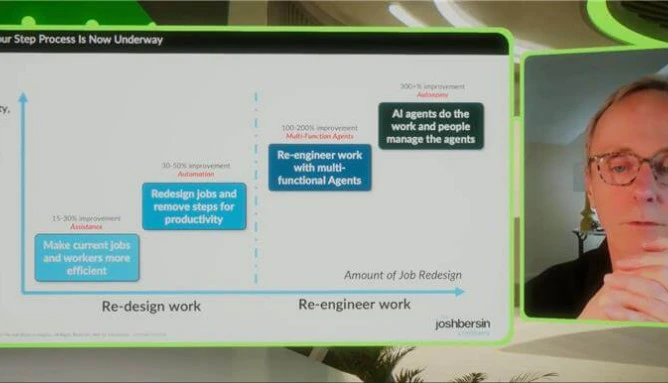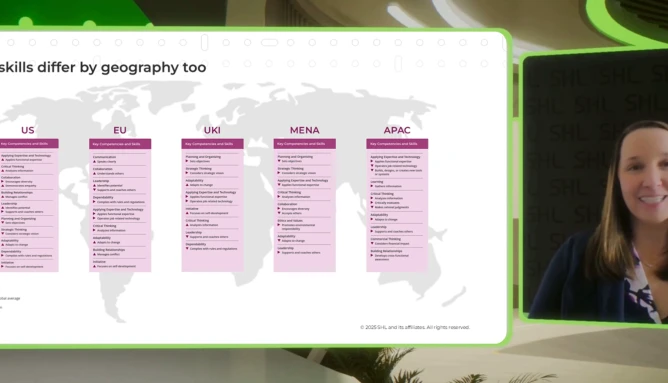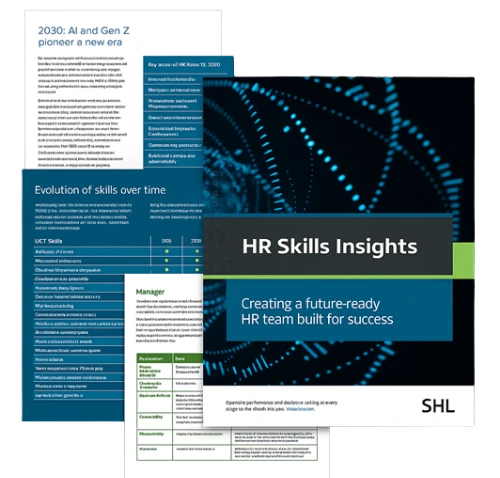“AI transformation is really a people transformation project, it is not just integrating a bunch of technology and buying a bunch of tools, it's about simultaneously skilling, moving, and enabling people to use these tools, and change their jobs and roles.”
Josh Bersin, SHL Virtual Summit 2025
Chapter 2
Q&A
Audience Poll
During the session, we asked our audience about where they see the biggest opportunity for AI and challenges in transitioning to a skills-based approach.
This is what attendees told us.
Opportunity
Where do you feel is the biggest opportunity for AI-enabled impact in the next year?
What this means
AI is moving from concept to capability. Organizations are prioritizing tools that automate workflows and drive faster hiring. But AI is not a fix-all. The real opportunity for HR lies in choosing tools grounded in science and fairness to deliver smarter insights, and more agile talent strategies. With the right AI and data, HR can turn raw objective data into strategic talent insights that help predict performance and potential.
Challenges
What is the main challenge your organization faces in transitioning to a skill-based approach?
What this means
The results show a promising shift from awareness to action. Organizations have a strong desire to move toward a skills-based model but many teams are grappling with the fundamentals of defining and measuring skills. That means developing a clear, consistent taxonomy that everyone – from HR to hiring managers – can understand and use. With this foundation in place, HR teams can assess, align, and activate skills across the business.
Full Event Replay
SHL Virtual Summit | Part 3
If you prefer you can view the full session below.
Looking for Part 4?
SHL Virtual Summit | Part 4
Watch Part 4 to hear how organizations are measuring AI-readiness and our latest research into measuring and developing Superworkers that can strive alongside AI.
How Can We Help?
From hiring and development, to talent mobility, our assessment solutions take the guesswork out of people decisions.









